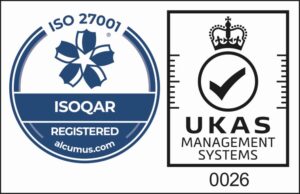The role of MSPs in helping companies navigate compliance and regulatory requirements (e.g., GDPR, HIPAA, etc.)
Compliance and regulatory requirements, such as the General Data Protection Regulation (GDPR) and the Health Insurance Portability and Accountability Act (HIPAA), are crucial for businesses in industries such as healthcare, finance, and technology. Compliance with these regulations can be complex and time-consuming, requiring businesses to implement specific security measures, data protection protocols, and reporting requirements. IT Managed Service Providers (MSPs) can play a significant role in helping companies navigate these requirements.
Expertise and Support
MSPs offer businesses access to a team of IT professionals with expertise in compliance and regulatory requirements. These professionals can help companies assess their current compliance posture, identify gaps in compliance, and implement solutions to address those gaps. MSPs can also provide ongoing support to ensure that companies remain compliant with changing regulations and requirements.
Security Measures
Compliance regulations often require businesses to implement specific security measures to protect sensitive data. MSPs can help companies implement these measures, such as encryption, access controls, and secure data storage solutions. MSPs can also provide ongoing monitoring and maintenance of these security measures to ensure that they are effective and up-to-date.
Data Protection
Data protection is a critical aspect of compliance regulations. MSPs can help businesses implement data protection protocols, such as data backup and disaster recovery solutions. MSPs can also provide advice on data retention policies and procedures to ensure that businesses are compliant with data protection regulations.
Reporting Requirements
Compliance regulations often require businesses to report on their compliance posture, security incidents, and other relevant information. MSPs can help companies generate reports that comply with these requirements. MSPs can also provide advice on incident response procedures and best practices to ensure that companies are prepared to respond to security incidents.
Training and Education
Compliance regulations often require businesses to train their employees on specific topics, such as data protection and security awareness. MSPs can provide training and education on these topics to ensure that employees are aware of their responsibilities and the risks associated with non-compliance.
In conclusion, IT MSPs can play a crucial role in helping companies navigate compliance and regulatory requirements. MSPs can provide expertise and support, implement security measures, implement data protection protocols, generate compliance reports, and provide training and education on compliance topics. By partnering with an MSP, companies can ensure that they are compliant with regulations, protect sensitive data, and mitigate the risks associated with non-compliance.




